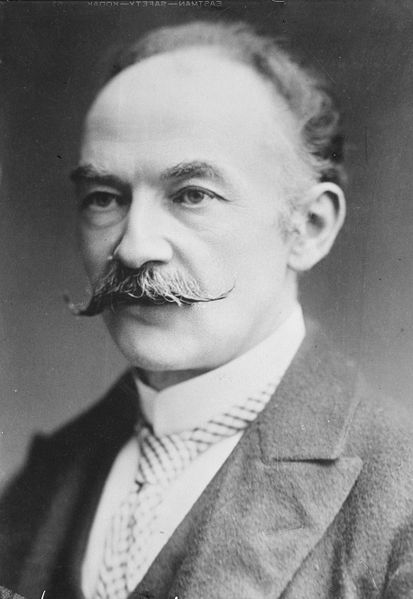Thomas Hardy (1840-1928) was born in a village of seven or eight cottages near Dorchester, located in the southern English countryside, to a father that was a mason with a strong interest in church music and a mother who loved the classics, particularly Dante's Commedia. The oldest of four children, Hardy inherited his father love of music and at age 16 became an apprentice to an architect. While engaging in architecture, he began to write poetry, though he was more successful as a novelist. Encouraged by George Meredith to be less of a social critic after the publication of The Poor Man and the Lady, Hardy had success with rural works like Desperate Remedies, before the fame that came with Far From the Madding Crowd, which allowed him to focus on literature exclusively.
Hardy went on to produce highly successful novels such as The Return of the Native, The Mayor of Casterbridge, Tess of the D'urbervilles, and Jude the Obscure. Following harsh reviews of the latter two novels, Hardy gave up writing novels to focus entirely on poetry. He produced a number of poetry collections, though his poetry is not as popular as his novels.
In 1880, Hardy published The Trumpet-Major, a novel that describes Anne Garland and her three suitors and takes place in Hardy's Wessex county. Against the background of war, Hardy describes early 19th century rural life in Napoleonic England.
Info on Thomas Hardy obtained from Thomas Hardy: A Biography Revisted (2004) by Michael Millgate.


No comments:
Post a Comment